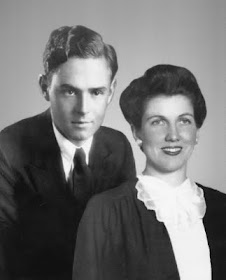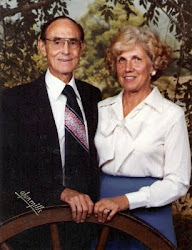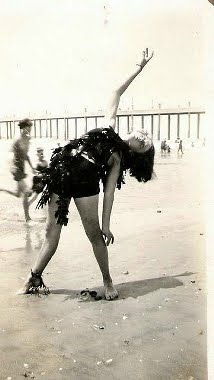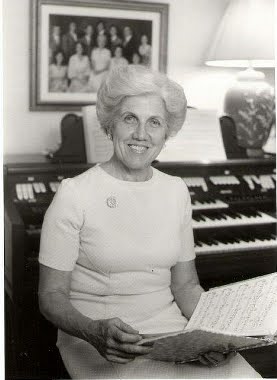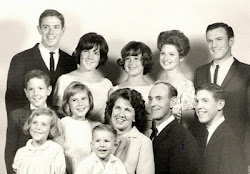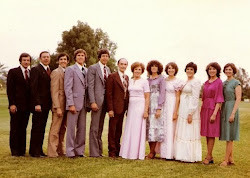A
BIT FROM A DIARY— 1933 FRANKLIN STUART
NUTTALL PARKINSON
MARCH 10th, l933. At 5:56 P.M., just after most business places
had closed, many business and working people had arrived home, schools had
closed for the usual weekend vacation, and most people were about to sit down
to dinner, Southern California experienced an EARTHQUAKE.
Ora was at the stove finishing the work of
serving dinner. The table was set,
chairs in place, and all were ready for the call. The entire family, otherwise, was around the
radio in the front room of a seven room, one story, tile-brick house, located
at 1384 Orange Ave., (the corner of 14th and Orange) long Beach,
California. The radio was giving forth
the Friday program of “TIME”, which consisted of the news of the greatest week
in American peacetime history, that in which FRANKLIN D. ROOSEVELT became
PRESIDENT of the UNION. We had heard his
several speeches and comments on the fast happenings surrounding his
inauguration, and his ability to command and shape into organization that which
would have floored most men. The program was still going when the phone
rang. I answered it and was talking with
Mr. C. A. Emerson when the safe upon which my phone stood, seemed to undertake to
throw me out of the house. While we rocked
and tossed from side to side, place to place, each trying to steady the other,
Ora came from the kitchen shouting to everyone to GET OUT OF THE HOUSE WE ARE
HAVING AN EARTHQUAKE, while she ran for
the front door, her purpose being to get it open so that all might get
out.
The act of transferring my attention from the
phone conversation, first to my contest with the safe, then to the words of my
wife and the act of saving the lives of the children, took place slowly and the
intervening time was so filled with happenings that one cannot comprehend. By the time the real hard part of the quake
came, I had seen that all the family was out on the sidewalk, and not too soon,
because by this time the four walls of the house were all shaking like tent walls
in a wind. While this was going on and
before I reached the front (west) door the fire place (north side of the living
room) had fallen forward (southward) into the room, there to meet the piano
which had come forward from the south side of the room. A fire had been burning in the
fireplace. I sprang forward and turned
off the gas, then ran back through the kitchen and turned off the gas at the
range, from which all the food had fallen onto the floor (potatoes, cauliflower,
and a roast) and on through the back door (northeast corner of the house) into
the garage (attached to the house) where I turned off gas and electricity at
the meters. From the start of the quake
to this moment- in all about 15 seconds- the tremblers were going strong. The fire walls had failed, the north and
south walls had parted from the roof and doors and windows had jammed or
fallen. We were in a tight spot, if that
saying ever conveyed any thought it seems expressive here.
We all gathered on Orange Ave., just in front
of the house and, upon looking things over, realized that we were out of that
house for good, and that our next problem would be to get food and
clothing. To the west of us we could see
the fire which had broken out in the Poly High School and began to realized
that perhaps more trouble was in store for Long Beach. The quake had settled down to a very fast
vibration only occasionally broken by a slow, long jerk, then back to the
vibration, which seemed to be constant.
I ran in and out of the house and secured bedding, clothing, food and
effects which seemed absolutely necessary, while the folk carried them and
packed them into the waiting car, which stood just north of the house at the
curb.
More things were accumulation than we could
find place for so the problem of elimination met us. We must take only what we had room for and
which was necessary to our existence.
What was to be done next we knew not, but we must face the future with
only such things as we could or hoped we could take. First space for our SEVEN and for FLORENCE,
NORMA with her BABY, and GRAHAM, must be considered. The top of the car might serve for packing
and conveying bedding, etc., but we could find no rope. Well we packed things inside and at the back,
brought everything we could out of the house,
and put all we could not carry in the garage, hoping that it would not
burn. Once loaded and the doors of the
house made fast, we undertook the ride from our past home to where Florence and
folk lived.
Good fortune was with us in making our
trip. There were no cracks in the
streets and men were already at work pushing the bricks from fallen walls from
the center of the pavements so to let autos by.
We turned south on Warren and east on Anaheim streets. Anaheim was terrible. Only about 45 minutes had gone since the
first quake and we found the street walled with heaps of fallen brick, timber
and debris. We had heard of people being
killed under falling walls, and that quite a number of students at the Poly
High were caught in the Gym, and now we realized how it could all be. Well, we picked our way, one in a caravan of
cars, across the city. The Marines were
in charge with a man on almost every corner and others at points of danger and
at the banks. We held firm to our
course, until, shortly after turning south on Park St., while hear the Wilson
High School at tenth St., Marines informed us that we should not go south, but
that we should go for higher ground as fast as possible.
The house in which Florence and group lived
was a complete wreck, although frame, it had fallen in and crumbled about like
a matchbox crushed in the hand. The
girls were out near a bon-fire enjoying themselves in perfect camping comfort
and unmindful of the perils which the marines were warning people of, a tidal
wave which might come soon. We informed
them and tried to get them all to join us.
Florence and Graham decided that they could help others and witness the
experience of the rest of the happenings, regardless what might come. Norma and baby joined us. Our next problem was WHERE TO GO. First we must get out onto the high lands.
We turned north and made our way over the east
end of Signal Hill. Upon arriving on the
crest of the Hill a very severe quake came.
We were shaken for fair while in the car. As the caravan, for there were thousands of
cars, moved forward we came to another cross road, about two miles north from
the Hill, and while waiting to cross on our northward flight another severe
quake overtook us, and what a shake it was.
It seemed about like we had moved the car onto a platform which could be
rocked and shaken, tossed and pitched, with the one exception that all severe
movements seems to be toward the hills.
Well we continued along our northward ride, without destination in mind
until Ora suggested that we might go to Will’s place in Girard. This seemed the thing to do, particularly in
view of the fact that Norm’s baby was sick, and that we were out of a house
until further arrangements could be made for renting and moving, if furniture
remained.
It was about 11:30P.M. when we arrived at
Will’s place. Only Ruth was home so we
had beds, the couch and the floor upon which to sleep, and we were now plenty
ready for all we could get without regard to whether hard or soft.
Next morning Ora and I returned to Long
Beach. We found quakes at frequent
intervals and danger lurking on every side.
Ora’s nerve force was at low ebb.
She had only recently had all teeth removed and added to this the shock
was all too much and the new quakes made a stop in Long Beach impossible. We attended to a little business, had our
furniture, which was in the open on our neighbor’s porch or in garages, placed
under the watch of some one, and make our way back to Girard.
At this point we shall bring up a few details
which we have missed with about 50 minutes from the time of the first quake, or
before 7:00 when Long Beach was under marshal law directed by officers on the
sea. Marines were seen everywhere,
almost on every corner, and they knew their business. They gave orders regardless. Our police and City officers had to take
orders from Uncle Sam. Soon various
officers made arrangements to cooperate and to carry out their part of the
work, but for days all was to be done under direction of the Marines.
MARCH
11, 1933 – Ora’s Birthday
A
few references under the date of the tenth actually occurred on the
eleventh. On our way back to Girard Ora
and I passed up Long Beach Blvd. as far as possible. We found much damage had been done all along
the line. Our neighbors had spent the
night around campfires. We went out to
Park Street and got Florence, whom we almost forced into the car. She had had no sleep and seemed about
exhausted. Graham had worked during the
day trying to extract furniture, and he had had no sleep. How they had managed with food I do not even
now know.
MARCH
12, 1933
Ruth, Florence, Norma, Mother Wilson and I
returned to Long Beach. On the way we
passed through parts of the country, which had been hit by the quake,
particularly the west and southern parts of Compton. We worked at the house to get more things out
and stored in the garage. All hands
helped until we had about everything, except heavy furniture, out. Later we visited Graham, and Norma and
Florence decided to stay, so they made arrangements at the camp in Recreation
Park for a tent and cots. With the
bedding they had they were made quite comfortable. About 1500 persons were in the camp and
seemed to be fairly well organized by this time. The Marines were still in charge. Ex-Service men were helping Marines
everywhere, and the traffic, for twenty miles in all directions, was controlled
by these men. Graham had worked all day
and been up ever since the quake began.
He was about all in and had arranged a cot for the night in the garage
back of his wrecked house. Mother Wilson
and I left after dark and arrived in Girard about mid-night.
MARCH
13, 1933
Will, Ora and I left Girard about 9:00A.M.and
made our way through Sawtelle, on through Santa Monica, and Wilmington to Long
Beach. We had gone through Englewood and
over the hills down toward Compton, but were not permitted to pass through the
town.
The
damage done through these cities was plenty, although not nearly so bad as in
Compton and Long Beach. We wanted to get
downtown in L.B. and to do so had to park the car near the corner of Linden and
7th. The business district
was roped off against cars. Our walk
brought us within all parts of the business district. Much damage was apparent everywhere. We ate a cold lunch at Schuh’s Café, feeling
in danger every minute, although the place showed little damage. The banks paid a few small checks which I
presented and the money surely was welcome.
This was the first day banks had done business freely for many days
because of the State holiday, followed by President Roosevelt’s orders to
remain closed. (See History) We checked our things, which were still, in a
great measure, on porches and in the open.
The Marines were still in charge.
Our return home was up Long Beach Blvd., along
Florence Ave., and other streets in the south of L.A. Havoc had been made of brick and some frame buildings
all along the way. The experience was a
good one for Will. He saw the realities,
although everywhere by this time the streets had been cleared of the debris and
getting around was merely a matter of common sense to be safe. The quakes were much apparent all day.
MARCH 14, 1933
Again Ora and I went to Long Beach. This time we took Helen and on the way we
spent several hours in the Westwood district looking for a house. We found several which we could use but we
were not satisfied. We went on to Long
Beach, and in the northwest district looked over several places without getting
satisfaction. At the old address we found
letters waiting, and telegrams form the home folk, to whom we had already sent
post cards and letters.
We made new arrangements for the keeping of
our furniture, which had been on a neighbor’s porch. It was stored in another neighbor’s
garage. We learned that the Wilcox
youth, who was hurt in the Poly High Gym, was much better and soon to be with
his folk again. People throughout the
quake district are still living in the open, most of them under tents. It had rained slightly during the night but without
damage.
Florence and Norma were working as K.P. at the
camp, and Graham was helping. Chas. L.
French is directing the outdoor work at the kitchen. He seemed to have plenty
to do and many to feed. He said that he
had been helping with the cooking for a couple of days. All were well housed and seemed satisfied.
Throughout Long Beach most of the schools were
perfect wrecks and none could ever be used for school purposes again, except
for a few buildings, which were concrete and steel. Many other public buildings displayed the
graft of the politician, and I am inclined to think there may soon be DER TAG
for those who construct or permit to be built such places for public and school
purposes.
I had occasion to call on a very sweet lady
for whom I had been doing some business- Mrs. Georgia K. French- and, while she
was soon to pay me money which was not yet due, she paid me $10.00 on account,
which came in as a gift from heaven. We
retuned to Girard about mid-night, because we had called on Mr. Aydelotte on
the way home.
MARCH
15, 1933
Mr. J. T. Aydelotte, an old friend, had been
to the Girard home of my brother Will yesterday, and left word that I was to
look him up as he wanted to help. I took
Ora and Ada with me and we went to Glendale where we met Family Aydelotte. Mr. Aydelotte joined us in a house hunt. We located several places and decided that a
day’s work had been done. We arrived
home in the early evening hungry and tired.
Mother Wilson and Ruth were prepared for us with good vittles.
MARCH
16, 1933
About 9:00A.M. we arrived at Glendale again
and after several hours we selected a place to live, made arrangements for
drayage, drove to Long Beach, where Mr. Aydelotte helped us bring our things
out of the falling house, helped the draymen load and sent him to Glendale with
the things just as darkness crept over the land. We then went to the Park and saw Florence,
Norma and Graham, with whom we ate supper.
Ada, Ora, Helen, Mr. Aydelotte and I swelled the line of hungry but
found plenty of good army ration food ready.
We ate it and went our way feeling that a good days work had been done
and that another was to come on the morrow when the furniture should be
unloaded at the new location 937 Coronado.
MARCH
17, 1933
Mr. Aydelotte, Ada, Helen, Ora and I met the
draymen and our load of furniture about 9:00A. M. We made time count and had our unloading and
the things in the house by middle afternoon.
I then drove to Girard and brought Mother Wilson, Marjorie, Donald and
Stanley to the new home, 937 Coronado Ave., where we all appreciated our beds.
































